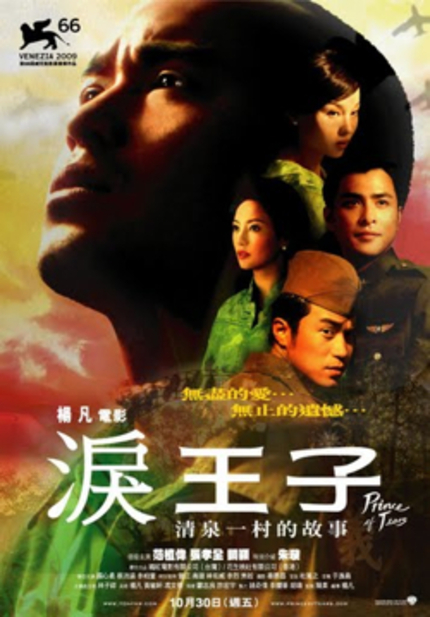PRINCE OF TEARS Review

In post-WWII Taiwan, Zhou and Li are young sisters growing up on an air force base, where their father (Joseph Chang) is a fighter pilot. However, their world is thrown into disarray when their parents are arrested by the KMT and charged with being communist spies. Zhou moves in with her father's war buddy, Ding (Fan Wing), who quite possibly had a hand in putting him away. Ding has a huge chip on his shoulder due partly to a large facial scar and partly because he lost the love of his life, Oauyang (Terri Kwan), to his superior, the much older General Liu (Kenneth Tsang). Oauyang and Zhou's mother, Ping (Zhu Xuan), were once best friends - a relationship mirrored by Oauyang's daughter Rainbow's attempts to befriend Zhou.
PRINCE OF TEARS surprises its audience on a number of levels. Firstly the young female leads do a great job of shouldering much of the emotional weight of the film. The major plot developments may come from the adults, but the ramifications are most pertinently felt by the three young girls. They are delightfully endearing yet never cloying and you genuinely feel for them as they are swept up in all number of mostly tragic events.
Secondly is the directorial input of Yonfan. I went into this film with serious reservations, as Yonfan's previous film, COLOUR BLOSSOMS, was an interminable chore. Sleazy, garish and amateurish, the most positive compliment I could bestow upon it was that the Shanghai Tang furniture looked comfortable. Here, however, you would be forgiven for not associating a single frame of PRINCE OF TEARS with that ghastly piece of work. Yonfan displays skill, subtlety and humanity rarely achieved by some of the most accomplished of filmmakers. He makes the audience care about his characters, so much so that the film's final act is all the more distressing when a major character, who had our support and respect for so long, makes big decisions which betray our moral and ethical standards. This is not a criticism of the storytelling, however, but rather a slap in the face by the harsh realities of the situation.
This slow burning drama successfully blends childish innocence with devious betrayal, the horrors of political paranoia and the rawest human survival instincts into a largely successful melodrama. In typical Taiwanese style the film is never in any rush to tell its story, but fortunately the performances and complex web of relationships keep you invested until the bitter end.







